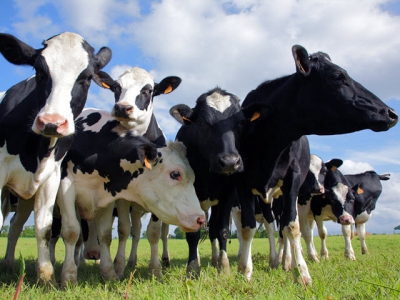Recent inbreeding in cows linked to greater depression

Research shows degree of inbreeding depression higher for dairy cattle with more recent ancestors versus multiple generations in the past.
Inbreeding may decrease the performance of cows, a phenomenon known as inbreeding depression, and now researchers at Wageningen University & Research (WUR) showed that, for dairy cows in the Netherlands, the degree of inbreeding depression is lower for “old inbreeding” (inbreeding on distant ancestors) than for “recent inbreeding” (inbreeding on recent ancestors).
This is probability the result of selection against deleterious alleles, the researchers, led by Harmen Doekes, said in an WUR announcement.
Inbreeding is the result of mating related animals. Animals are related when they share common ancestors, which can be recent ancestors (e.g., a grandparent) or more distant ancestors (e.g., a shared ancestor from eight generations ago), WUR explained. The higher the relatedness between two animals, the higher the inbreeding of their offspring.
Recent inbreeding
According to WUR, the study showed that the degree of inbreeding depression was higher for recent inbreeding than for older inbreeding.
For example, a 1% increase in inbreeding on ancestors from the first four to five ancestral generations was associated with a decrease in milk production of about 35 kg (for a 305-day lactation), whereas inbreeding on ancestors from longer ago had no clear effect, the researchers said.
This difference may be explained by selection, which decreases the frequency of deleterious alleles over time and, thereby, decreases the effect of old inbreeding, they added.
Reducing inbreeding rate
The findings of this study confirm that it is important to manage the inbreeding rate, the rate with which inbreeding increases, WUR said. This is because selection may counteract the negative effects of inbreeding, provided that inbreeding does not increase too quickly.
By managing the inbreeding rate, the amount of new inbreeding is also limited, the researchers concluded.
Related news
 Industry wants origin of organic livestock rule finalized
Industry wants origin of organic livestock rule finalized USDA reopens proposed rule on amending origin of livestock requirements for dairy animals.
 Canola oil, nitrate play role in lowering cattle methane output
Canola oil, nitrate play role in lowering cattle methane output Supplementing beef cattle diets with nitrate and canola oil lowered methane yield and daily methane production but it does not alter the flow of microbial
 US methane reduction project sees $3m investment in domestic seaweed research
US methane reduction project sees $3m investment in domestic seaweed research Bigelow Laboratory for Ocean Sciences is focusing on developing a feed additive from regional seaweeds to reduce methane production and improve dairy cow health